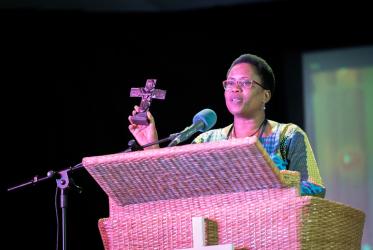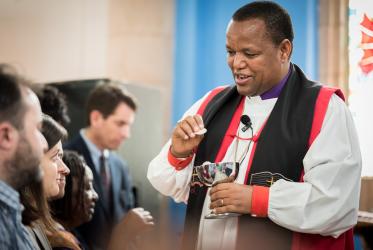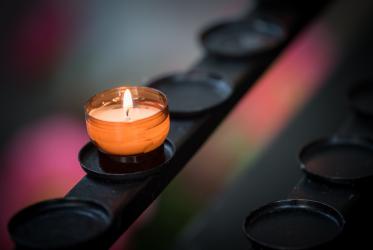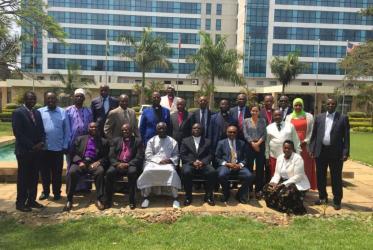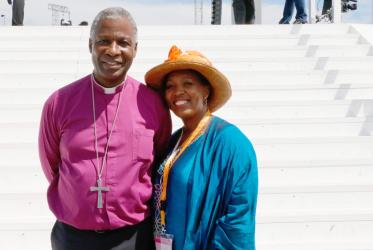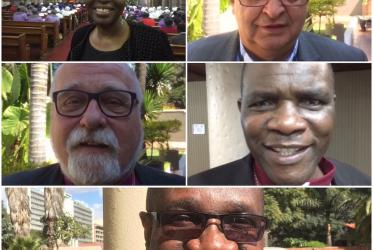Displaying 21 - 40 of 55
“Sending service” closes Arusha conference
13 March 2018
Arusha offers vibrant and colourful worship life
12 March 2018
#WCC70: Churches as “freedom agents”
12 February 2018
WCC Executive Committee comments on situation in Zimbabwe
22 November 2017
Voices from a solidarity visit to Zimbabwe
25 May 2017
Tveit in South Africa: “ We know. We dare. We can.”
12 June 2016
